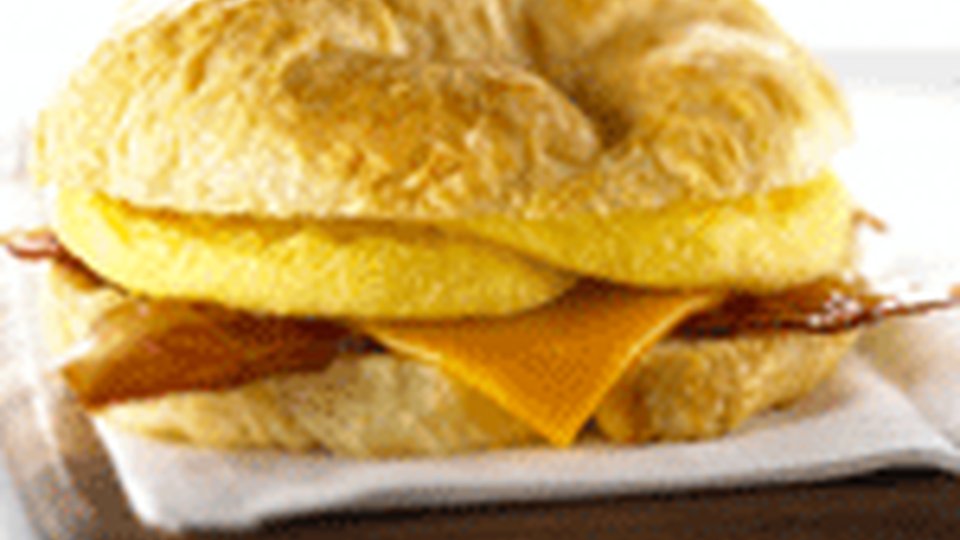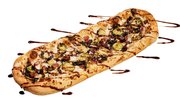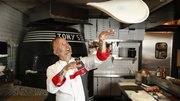Article
Brawling over breakfast
The fast-casual battle for breakfast is shaping up to be a bruiser.

February 12, 2007
For nearly a century, breakfast has been big business for the U.S. restaurant industry, and it's about to get bigger.
According to the 2006 report from Packaged Foods, "The Revolution in Dayparts: Breakfast in the Foodservice Market", the current domestic breakfast market is worth $65 billion. In eight years it is predicted to swell in value to $83 billion. If fast-casual operators have their way, they'll grab a substantial share of that pie because market research indicates a growing number of breakfast eaters want a more upscale experience.
The a.m. rush
No question that breakfast is more important than ever to quick-service restaurants. Recent invigorated efforts to get food into the hands of hungry and time-starved Americans include Jack in the Box's all-day breakfast service, McDonald's test of the same, and Wendy's plans to add breakfast at several hundred stores this year — despite a failed breakfast attempt two decades ago.
Such interest in A.M. eats, said Jerry Couvaras, chief executive and president of Atlanta Bread Company, means the time is right for ramping up breakfast efforts in fast-casual.
"Breakfast is the new big thing," he said. "Everyone's got lunch ... but the last of the dayparts left up for grabs is breakfast."
Fast casual has its work cut out for it, however. While its customers aren't as price driven as QSR patrons, fast casual must meet or beat QSR's speed and convenience, and provide other compelling reasons for patrons to park and go inside the restaurant.
"If you don't have a drive-thru at breakfast you better have something else," said Steve Greene, chief operating officer at Camille's Sidewalk Café. "We first have to ask what we're doing differently from anyone else. ... Whatever that is, it must be more like the quick-casual experience than like fast food."
Greene said that means every dish must be prepared to order — heat lamps are verboten — with fresh ingredients and dishes each customer can customize slightly.
Just like QSR breakfast, fast casual also must be portable, said Darren Tristano, executive vice president for Technomic Information Services. "It's all about dashboard dining."
Greene agreed, but said the dish has to be much higher quality than quick-service grab-and-go food.
"Yes, the customer wants to get in and get out quick, but we can't just throw a donut at them," he said. "But there's no doubt they want something they can eat in the car or at their desk."
Many restaurant players also do coffee well, Greene said, but no one had staked a reputation on serving fresh-squeezed orange juice. Camille's did that both to echo its fresh-food message and differentiate itself, he said.
| |||||||||||||||||||||
One clever sandwich added to the menu last year blended an onion-dill bagel with salmon, cucumber and a wasabi-honey spread. The addition was such a hit it captured 20 percent of breakfast sandwich sales.
Of course, Starbucks Coffee got industry-wide attention when it announced last fall it would introduce warm breakfast sandwiches at a couple hundred outlets. Now they're available in 1,100 stores domestically.
According to spokesperson Sanja Gould, premium ingredients are key to the success of the new additions; sandwiches get peppered bacon, aged cheddar and havarti cheeses, Black Forest Ham, turkey bacon and cholesterol-free eggs.
Though the coffee giant doesn't break out sales in detail, Gould said, "We have been very pleased with the reception."
Go with what you know
Tristano said fast-casuals must do at breakfast what they do best at lunch: provide higher-quality products and greater service than their quick-service peers, and at a price below their casual-dining peers. "The atmosphere is better, the décor is better, the food is better — all the things that are typically quick-casual — play on those strengths."
Green said Camille's works hard at breakfast line busting because customers are hungry and hurried in the morning. They don't want to be in a long queue "tapping their toes and wondering when they're going to get to work."
Even though customers might not know they're doing it, Tristano believes their QSR experiences have formed their breakfast baseline expectations at restaurants. The question they ask, he said, is what a fast-casual experience will cost them in terms of time and expense. If the offering isn't compelling, they'll move on.
Greene, who has a doctorate in marketing, said even a compelling offer isn't enough to ensure customers will visit. Enticing them to visit fast-casual restaurants is a matter of helping them break long-term habits, he said.
"If you have a morning routine, think of how difficult that is to break," he said. "Our goal is to change the behavior of consumers ... people we see as misbehaving if they go through the drive-thru at McDonald's.
"How do we get them to change their habits? With wow factors and positive reinforcement. If I can get them to do that three times, it's over. I've got 'em."
Couvaras said fast-casual operators — especially the bakery café companies — have the advantage of flexibility in both offerings and operations. The most regular workday customer at Atlanta Bread is a grab-and-go eater satisfied with a hot beverage and a quality pastry. But on Saturdays and Sundays, the pace slows and customers linger.
"On the weekend it changes to omelets, and the family comes in," he said. "You see lots of bicycles outside the store on weekends. During the week, the egg's not a big deal. It's more a weekend thing."
Related Media
Food & BeveragePresented ByOracle
Presented ByOracle
 ChatGPT
ChatGPT Grok
Grok Perplexity
Perplexity Claude
Claude













